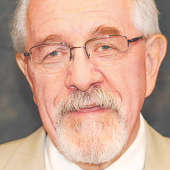- Christmas shopping is done, presents wrapped, strings attached? (12/14/16)
- Cecil is dead and human lives are threatened every day (8/12/15)
- As state flags go, Nebraska's ranks 50th (7/8/15)
- When everything looks like a nail (4/29/15)
- Who remembers to coal slurry pipeline debate? (3/11/15)
- More revelations in Department of Corrections mess (12/17/14)
- The Legislature becomes more Republican (11/19/14)
Opinion
Whatever it was, it wasn't 'reform'
Wednesday, September 14, 2011
LINCOLN -- The recent fiasco resulting from Nebraska's attempt to partially privatize child welfare services is remindful of two things.
The first is that anytime government hands off an important duty to the private sector, it should be as certain as possible that things are set up to make the transition work.
When the Department of Health and Human Services began in 2009 to oversee a private contractor that would handle child welfare services it wasn't prepared to do the job, as noted in a caustic report from the state auditor's office that scorched DHHS.
The costs of child welfare efforts increased by tens of millions of (taxpayer) dollars between 2009 and 2011.
The privatization effort was supposed to save money, ultimately; to enhance efficiency and oversight. In the vernacular of the Internet it would be labeled: FAIL.
The audit cited failures of oversight, overpayments, wrong payments and failures to use the bidding process to let some contracts and ... a lot of other stuff.
Then there was the other thing, previously referenced, that griped some reporters (like this one) and hopefully griped some English teachers.
Throughout the development of the plan to privatize a portion of the child welfare system, reporters constantly referred to the proposed changes as "reforms."
And when everything went south, reporters still referred to problems with the "reforms."
In fact, the changes were not "reforms." They were revisions. Or changes, if you prefer. They definitely were not reforms.
The word "reform" does, by definition, mean to make something better. To improve it. Whatever happened to the child welfare system, it wasn't "reform," was it?
That is why politicians and reporters should refer to proposed revisions in laws and programs as revisions.
The word "revision" means to change something. It is neutral in judging the merits of the revisions.
Why is this important? Because words have meanings. Even in election years.
It's also a tad important because raising the issue serves (I hope) to let you know that editors and reporters discuss these types of things. Actually, they holler and sometimes pound desks. Some of us have the advantage of being columnists, so we can prompt discussions. Or arguments.
And without having to hear anyone holler, we get away with saying: "There is nothing to discuss! 'Revision' is the correct word, and 'reform' is the wrong word, and our readers deserve the correct word."
The view from here: This is a good opportunity to bring another thing into the marketplace.
Virtually everyone describes interest groups as "special interest groups," which is a redundancy so obvious that its use should be a misdemeanor, at least.
No matter how long you witness the policymaking process, you will never meet one interest that isn't special to someone.
If you're an environmentalist, you might consider the oil industry a "special interest." What's special about it? It's no more special than the insurance industry, the agricultural chemical industry, the automobile industry or groups that want REVISIONS in laws or regulations which apply to midwifery, the nursing of infants in public or the qualifications needed for obtaining a real estate licenses.
"Special interest" is thrown into conversation like a rock. It has become a pejorative. And it has always been redundant.
And redundancy, like clichés, should be avoided. Like the plague!

